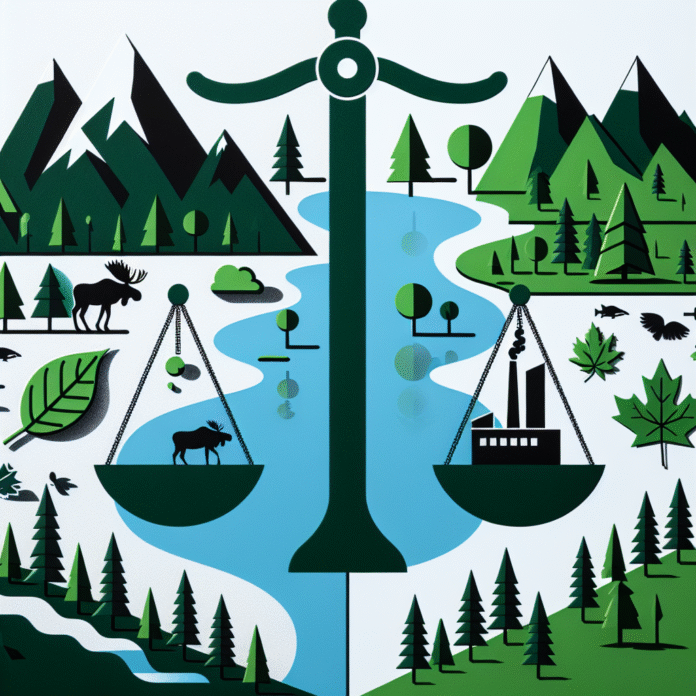Canada’s Election and Environmental Impact
Canada’s Election: Crucial Implications for Environmental Policy
As Canada approaches its pivotal election, the stakes for the planet are higher than ever. Voters are increasingly aware of the urgent need for robust environmental policies to combat climate change and protect natural resources. This election presents a critical opportunity for Canadians to assess the environmental commitments of the political parties and make informed decisions that will impact the future of the planet.
Climate Change: A Defining Issue
Climate change has emerged as a defining issue in Canadian politics, with increasing recognition of its far-reaching effects on ecosystems, economies, and communities. The latest scientific reports highlight the need for immediate action to reduce greenhouse gas emissions and transition to sustainable energy sources. As the effects of climate change become more pronounced, politicians are under pressure to respond with concrete plans and policies.
Party Platforms and Environmental Commitments
Each political party has presented its vision for addressing climate change and environmental degradation. The Liberal Party has emphasized its commitment to achieving net-zero emissions by 2050, alongside investments in renewable energy and green technology. The Conservative Party has focused on balancing economic growth with environmental stewardship, advocating for market-driven solutions to environmental challenges.
Meanwhile, the New Democratic Party (NDP) has called for more aggressive climate action, proposing significant investments in clean energy and a comprehensive plan to eliminate fossil fuel subsidies. The Green Party continues to advocate for ambitious climate goals and sustainability initiatives, positioning itself as the leading voice for environmental justice.
Indigenous Rights and Environmental Stewardship
An integral aspect of Canada’s environmental discourse is the role of Indigenous communities in stewardship of the land. Indigenous peoples have long been the guardians of Canada’s natural resources, and their rights and knowledge must be central to any effective environmental strategy. The election presents a chance to elevate Indigenous voices and ensure their rights are respected in decision-making processes regarding land and resource management.
Public Engagement and Activism
Public engagement in the electoral process is crucial for shaping environmental policy. Citizen activism has surged in recent years, with movements demanding accountability from political leaders. Canadians are increasingly participating in climate strikes, advocacy campaigns, and community initiatives, urging candidates to prioritize the environment. This heightened awareness and activism can influence party platforms and compel politicians to take more ambitious stances on climate issues.
The Global Context
Canada’s election comes at a time when global environmental challenges are at the forefront of international discourse. With the Paris Agreement aiming to limit global warming, Canada must play its part on the world stage. The commitments made by the next government will not only affect domestic policies but also Canada’s reputation as a leader in international climate negotiations.
Conclusion: A Vote for the Future
As Canadians head to the polls, the choices they make will have lasting implications for the environment and the future of the planet. It is essential for voters to critically evaluate the environmental policies proposed by candidates and to consider the long-term impact of their decisions. This election is not just about immediate political gain, but rather about the legacy Canada will leave for future generations. By prioritizing sustainability and climate action, Canadians can contribute to a healthier planet and a more equitable society.
